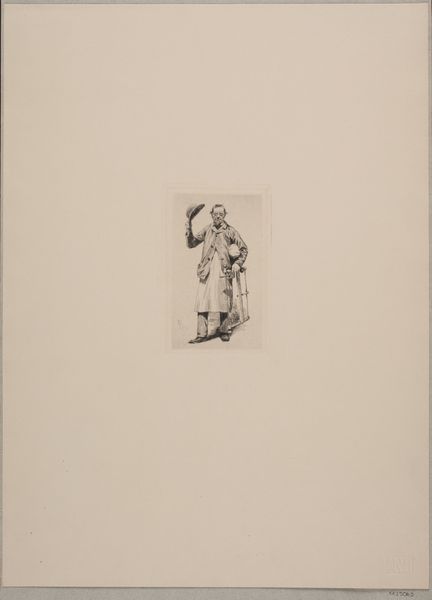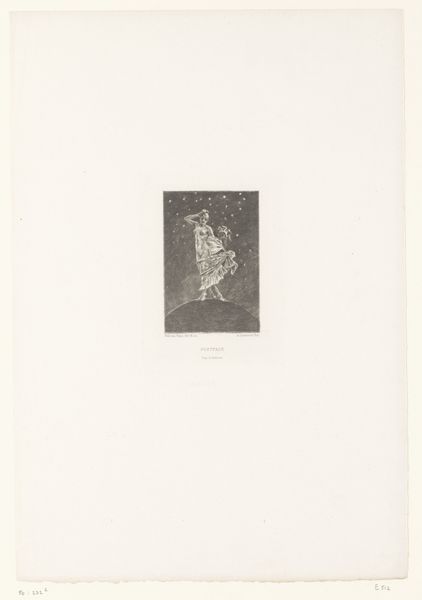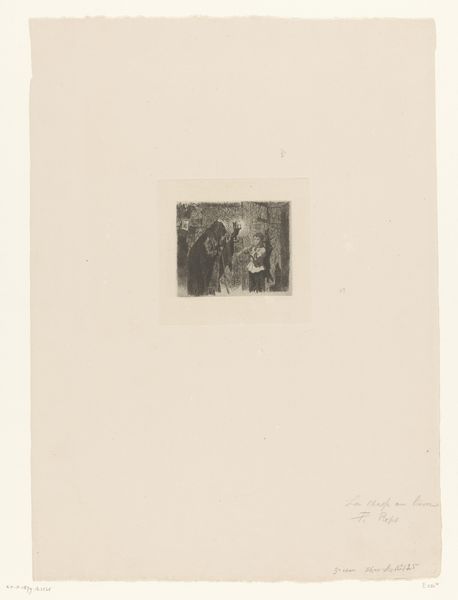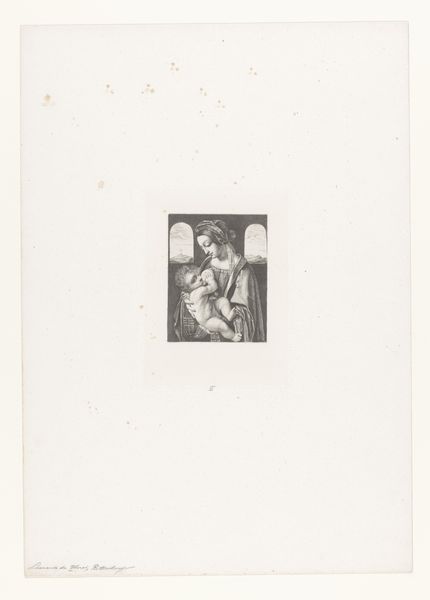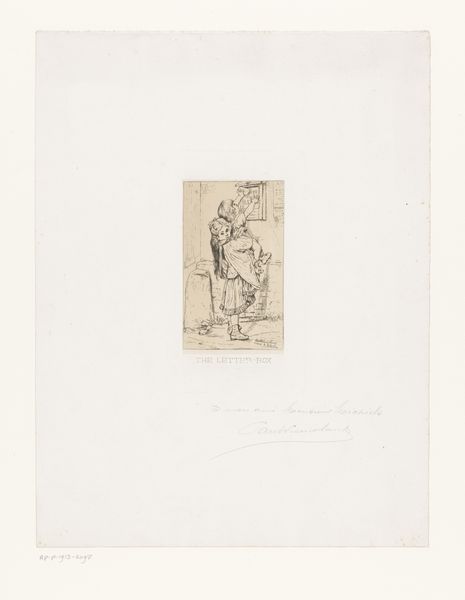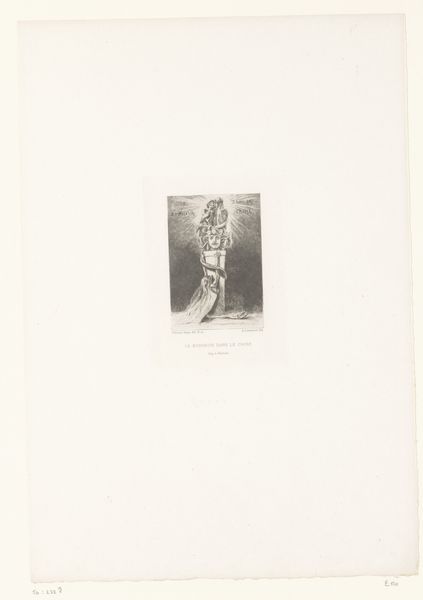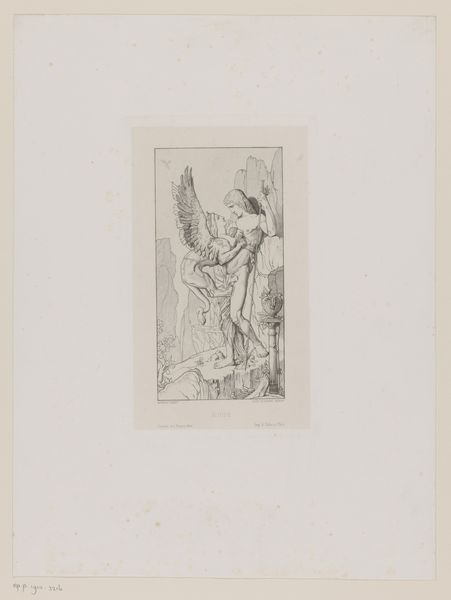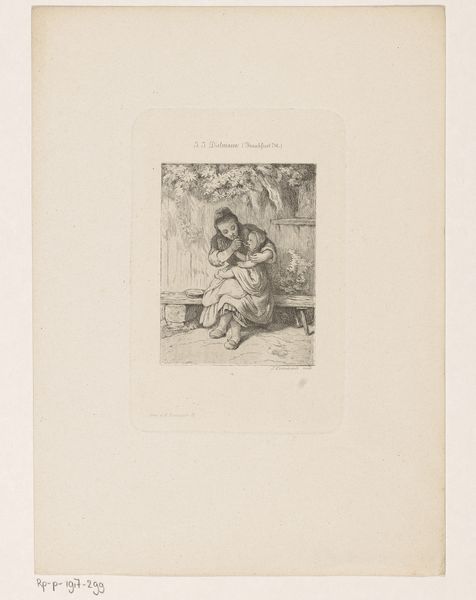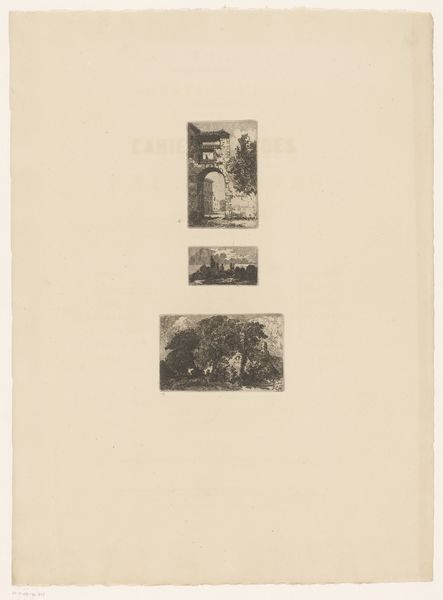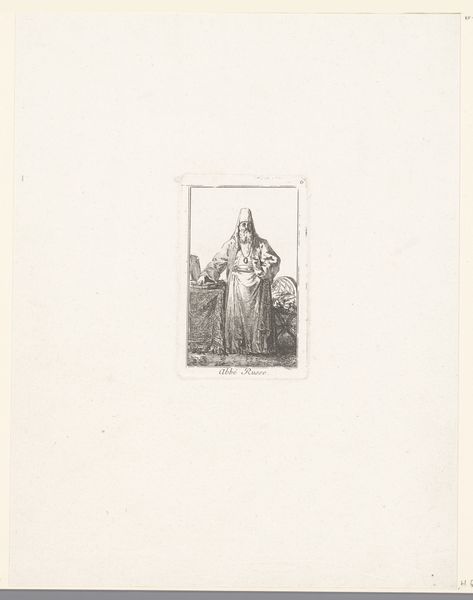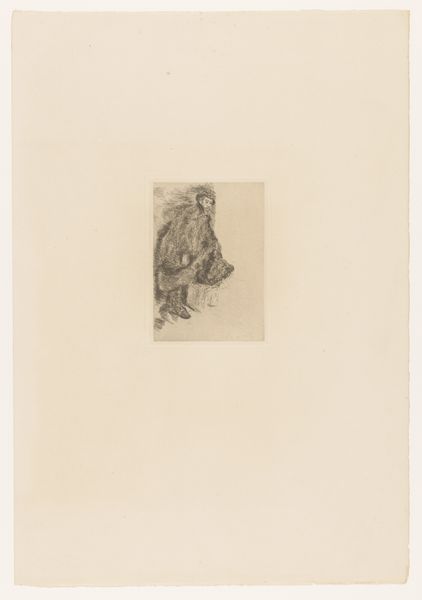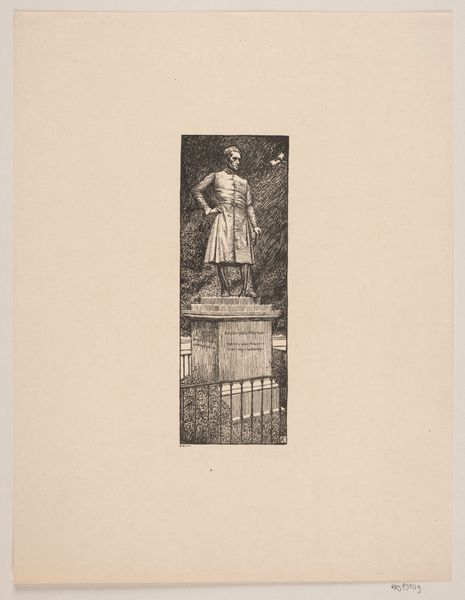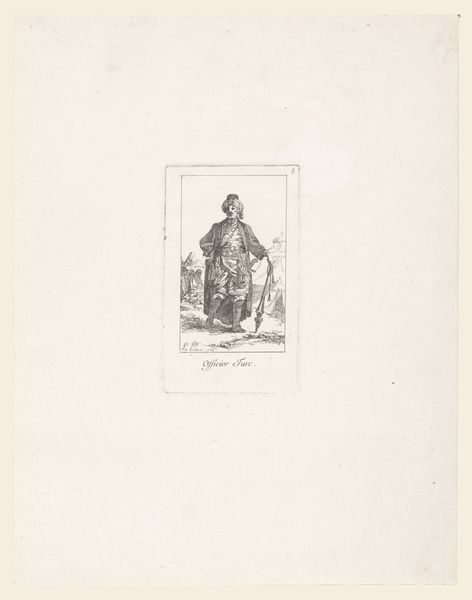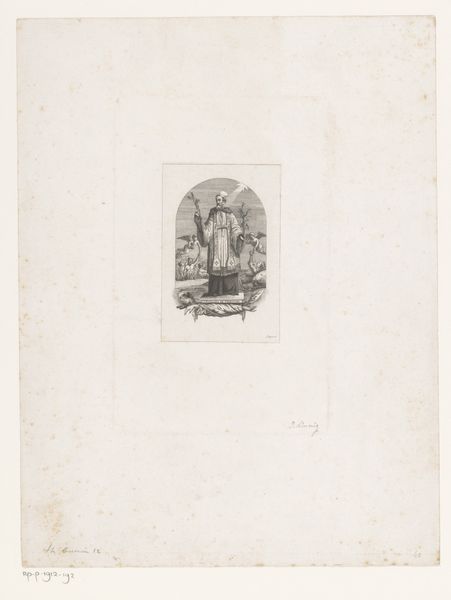
print, engraving
# print
#
old engraving style
#
figuration
#
line
#
history-painting
#
engraving
#
realism
Dimensions: height 319 mm, width 159 mm
Copyright: Rijks Museum: Open Domain
Editor: This is William Unger’s “Heilige Sebastiaan,” or Saint Sebastian, an engraving made sometime between 1861 and 1889, currently housed in the Rijksmuseum. I’m struck by the linear quality and the rather melancholic tone. How would you interpret this piece? Curator: Well, immediately, the figure of Saint Sebastian is iconic, isn’t it? Ponder the visual language – the arrows, the bound posture, the almost serene expression. How do these elements interact to shape the viewer’s emotional response? Do you think the artist intended to evoke a feeling of pity, or something more complex, perhaps resilience? Editor: Resilience, maybe. There's a certain stillness in his face despite the circumstances, and the details surrounding him seem more ornate and grand than despairing. It's not a scene of gruesome horror. Curator: Precisely! Unger isn't just depicting a historical event; he's drawing upon a rich well of symbolism. Think of the historical context: plagues, martyrdom, religious fervor. How might these have influenced the image’s power? The composition invites contemplation – what continuities might you infer based on Sebastian’s legacy through cultural memory? Editor: So, Saint Sebastian as a symbol evolved over time, taking on different meanings based on cultural anxieties or beliefs? Curator: Absolutely! His image becomes a vessel for anxieties and hopes. How the culture processes suffering becomes a symbolic code within his representation. Consider the viewers throughout history… Editor: So, beyond the visual details, it’s about understanding the continuous, evolving conversation that a symbol like Saint Sebastian carries through time. It's definitely deeper than just the surface level. Curator: Indeed! The power of imagery isn’t merely in its aesthetic, but in its ability to act as a cultural touchstone. Unger gives us both a historical snapshot and an ongoing reflection.
Comments
No comments
Be the first to comment and join the conversation on the ultimate creative platform.
